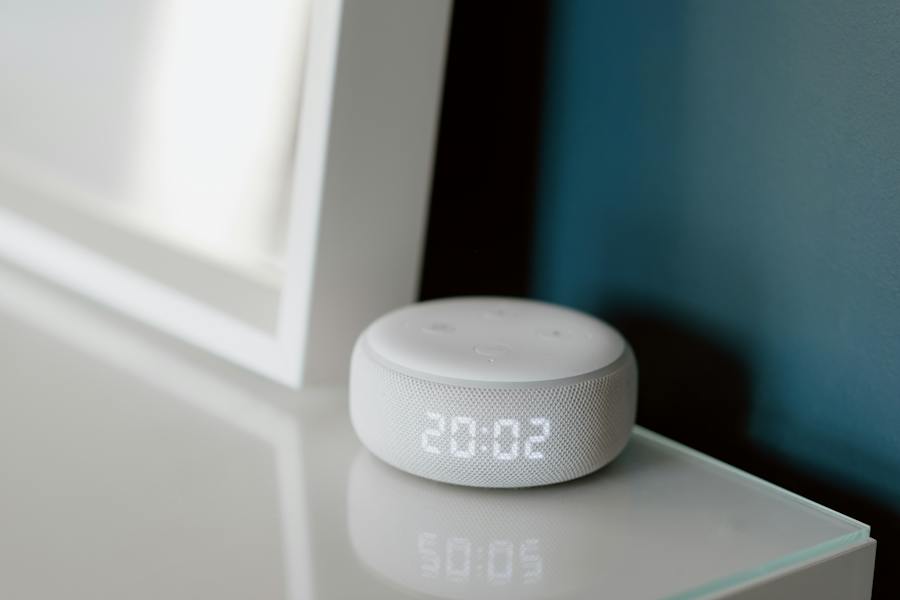Virtual assistants have become integral to our daily lives, promising convenience and efficiency at the sound of our voice. Among the frontrunners in this digital revolution are Amazon’s Alexa and Apple’s Siri, each boasting unique capabilities and personalities. As these AI-powered assistants continue integrating themselves into various aspects of our routine, from managing smart homes to providing personalized information, a pertinent question arises: which one reigns supreme? This article delves into a comprehensive comparison of Alexa and Siri, exploring their origins, functionalities, and how they fit into the tapestry of our digitally-assisted lives, helping you decide which assistant might suit you better.
Do You Like Alexa Or Siri Better?
I am leaning towards Alexa over Siri, primarily due to its superior integration with smart home devices and a more comprehensive range of third-party app compatibilities. Alexa’s ability to seamlessly connect with various intelligent gadgets in my home, from lights to thermostats, offers an unmatched level of convenience. Additionally, Alexa’s skill set, which includes thousands of skills developed by third-party developers, allows for a more customized and varied user experience. While Siri has its strengths, particularly in integrating with Apple’s ecosystem and natural language processing, Alexa’s versatility and adaptability in smart home technology give it an edge in my day-to-day use.
What Are The Features And Functionalities Of Alexa?
Alexa, developed by Amazon, is a sophisticated virtual assistant designed to simplify and enhance daily life through its wide array of features and functionalities. Here’s a more detailed look at what Alexa offers:
Voice Interaction And Recognition: At its core, Alexa is designed for voice interaction. It can understand and respond to voice commands, queries, and requests. It’s capable of voice recognition, allowing it to differentiate between users and provide personalized responses.
Smart Home Automation: Alexa excels in controlling various smart home devices. It can integrate with lights, thermostats, locks, cameras, and more, enabling users to manage their home environments through simple voice commands. Alexa supports various smart home protocols and can work with numerous brands, making it a versatile choice for home automation.
Music And Audio Playback: Users can ask Alexa to play music, podcasts, and audiobooks. It supports streaming services like Amazon, Spotify, Apple Music, Pandora, and Audible. Alexa can also control playback across multiple devices, creating a synchronized audio experience throughout the home.
Information And Entertainment: Alexa can provide news briefings, weather forecasts, and traffic updates and answer general knowledge questions. It can also access a wide range of internet-based information to answer queries on various topics.
Scheduling And Reminders: Alexa assists in managing schedules setting reminders, timers, and alarms. It integrates with popular calendar services, providing users with voice-activated schedule management.
Communication: Alexa enables hands-free calling and messaging. This feature extends to Alexa-enabled devices and the Alexa app. Users can also make announcements to all Alexa devices in their home, functioning like an intercom system.
Alexa Skills: One of Alexa’s most powerful features is its ‘Skills’, similar to smartphone apps. Thousands of skills are available, ranging from games and trivia to fitness, meditation, and productivity tools. These skills allow for extensive customization of the Alexa experience.
Shopping Assistance: Alexa simplifies shopping with voice commands. Users can search for products, add items to their Amazon shopping cart, check order statuses, and even make purchases, all through voice interaction.
Routines: Alexa allows the creation of routines – customized actions triggered by a specific command or at a scheduled time. For example, a morning routine might turn on the lights, read the news, start the coffee maker, and play the day’s weather forecast.
Accessibility Features: Alexa includes features designed for accessibility, aiding individuals with various disabilities. This includes voice profiles for speech impairments and features tailored for visually impaired users.
What Are The Features And Functionalities Of Siri?
Siri, Apple’s virtual assistant, is an integral part of the iOS, iPadOS, watchOS, macOS, and tvOS ecosystems, offering a wide range of features and functionalities designed to enhance user experience and productivity. Here’s a detailed overview:
- Voice Commands And Interaction: Siri allows users to interact with their devices using voice commands. It can understand natural language and context, making communication easy.
- Device Integration: Siri is integrated across Apple devices, including iPhones, iPads, Mac computers, Apple Watch, and Apple TV, allowing for a seamless experience across the Apple ecosystem.
- Personalization: Siri learns from individual usage patterns and preferences, offering personalized suggestions and responses. It can recognize different voices on some devices, providing customized experiences for each user.
- Information Retrieval: Siri can answer questions like news updates, sports scores, weather forecasts, and more. It uses internet sources to pull relevant and up-to-date information.
- Messaging And Calls: Siri can send and make phone calls and announce incoming calls or read messages aloud, which is especially useful on the Apple Watch and when using AirPods.
- Scheduling And Reminders: Siri helps manage schedules set reminders, timers, and alarms. It can add events to the calendar and remind users of upcoming appointments.
- Navigation And Maps: Siri offers turn-by-turn navigation through Apple Maps. It can provide directions, traffic information, and estimated arrival times.
- Email Management: Siri can read, send, and search for emails, making it easier to manage email communication hands-free.
- Smart Home Control: With Apple’s HomeKit, Siri can control smart home devices like lights, thermostats, and locks, enabling users to manage their home environment through voice commands.
Origin And Development Of Alexa And Siri
The origin and development of Alexa and Siri represent significant milestones in the evolution of artificial intelligence and voice recognition technology.
Alexa’s Origin And Development:
Alexa, developed by Amazon, was first introduced in November 2014 alongside the Amazon Echo, a smart speaker designed to respond to voice commands. The inspiration behind Alexa stemmed from the computer voice and conversational system depicted in the Star Trek series. Amazon’s vision was to create an intelligent personal assistant capable of voice interaction, music playback, setting alarms, streaming podcasts, and providing real-time information like weather and traffic.
The development of Alexa required advancements in fields such as natural language processing, speech recognition, and machine learning. Amazon also introduced the Alexa Skills Kit (ASK) and the Alexa Voice Service (AVS), enabling third-party developers to create new skills and integrate Alexa into their products. This open-ecosystem approach led to a rapid expansion in Alexa’s capabilities.
Over the years, Alexa has been updated to include new features like voice recognition for different household members, integration with smart home devices, and capabilities such as “Alexa Guard” for home security. It has also expanded beyond Echo devices to include a range of products from other manufacturers, including cars, home appliances, and wearables.
Siri’s Origin And Development:
Siri originated as a standalone app developed by Siri Inc., which Apple acquired in April 2010. Siri, as an app, was designed to be a virtual personal assistant capable of understanding and responding to natural language queries. Apple integrated Siri into its operating system with the launch of the iPhone 4S in October 2011, marking one of the first major deployments of a voice-activated assistant in a smartphone.
Siri’s development has focused on improving its speech recognition capabilities, expanding its language support, and refining its ability to understand context and provide relevant responses. Apple has continuously worked on making Siri more conversational and proactive, with features that allow it to suggest actions based on the user’s habits and current context.
Significantly, Siri has been integrated into various Apple products, including the iPad, Mac, Apple Watch, Apple TV, and HomePod, ensuring a consistent and seamless experience across the Apple ecosystem. Introducing Siri Shortcuts in iOS 12 allowed users to create custom voice commands to perform specific app tasks, greatly enhancing Siri’s functionality and user customization.
The development paths of Alexa and Siri highlight the dynamic nature of voice assistant technology, with each evolving and adapting in response to user needs and technological advancements. Alexa’s strength lies in its vast third-party integration and smart home capabilities, while Siri offers deep integration and a seamless experience across Apple devices.
Comparison Of Voice Recognition Capabilities
The voice recognition capabilities of Alexa and Siri are central to their functionality as virtual assistants. Both have made significant advancements in this field but exhibit distinct characteristics and performance aspects. Here’s a comparison of their voice recognition capabilities:
Alexa
- Accuracy: Alexa is known for its high accuracy in voice recognition. It’s particularly adept at understanding different accents and dialects due to Amazon’s extensive data collection and processing.
- Voice Profiles: Alexa supports the creation of voice profiles, allowing it to recognize and differentiate between the voices of different users in a household. This enables personalized responses and experiences for each user.
- Noise Handling: Alexa has shown strong performance in noisy environments, thanks to Amazon’s continual improvements in noise-cancellation technology and far-field voice recognition in Echo devices.
- Contextual Understanding: While Alexa can handle essential context in conversations, it sometimes needs to catch up with Siri to understand the context of follow-up questions or commands.
- Skills Integration: Alexa’s voice recognition is further enhanced by its vast array of skills, which can be activated and controlled through voice commands.
Siri
- Accuracy: Siri is highly accurate in voice recognition, especially for users deeply integrated into the Apple ecosystem. It’s optimized for the languages and accents most common among Apple’s user base.
- Contextual Understanding: Siri excels in understanding the context of queries and can handle follow-up questions more effectively. This is partly due to its integration with iOS, allowing it to access a user’s data (with permission) to provide more relevant responses.
- Personalization: Siri also offers personalized experiences but relies more on the device’s understanding of the user’s habits and preferences rather than distinct voice profiles.
- Integration With Apple Devices: Siri’s voice recognition capabilities are seamlessly integrated across Apple devices, offering a consistent experience whether the user is on an iPhone, iPad, Mac, or Apple Watch.
- Privacy Focus: Apple strongly emphasizes user privacy, which includes how voice data is processed and stored. This affects how Siri learns and adapts to a user’s voice over time.
Conclusion
When comparing Alexa and Siri, it’s evident that both virtual assistants offer unique strengths and cater to different user preferences and needs. With its expansive third-party integration and robust smart home capabilities, Alexa shines in a diverse and open ecosystem, making it ideal for users who value versatility and extensive smart home control. Its ability to create voice profiles and handle many skills makes it highly adaptable in a household with multiple users. On the other hand, Siri, deeply integrated into the Apple ecosystem, offers a seamless and consistent experience across all Apple devices. Its superior contextual understanding and privacy-focused approach make it a strong choice for users already invested in Apple’s ecosystem and prioritize data security and a more personalized assistant experience.

























Leave a Reply